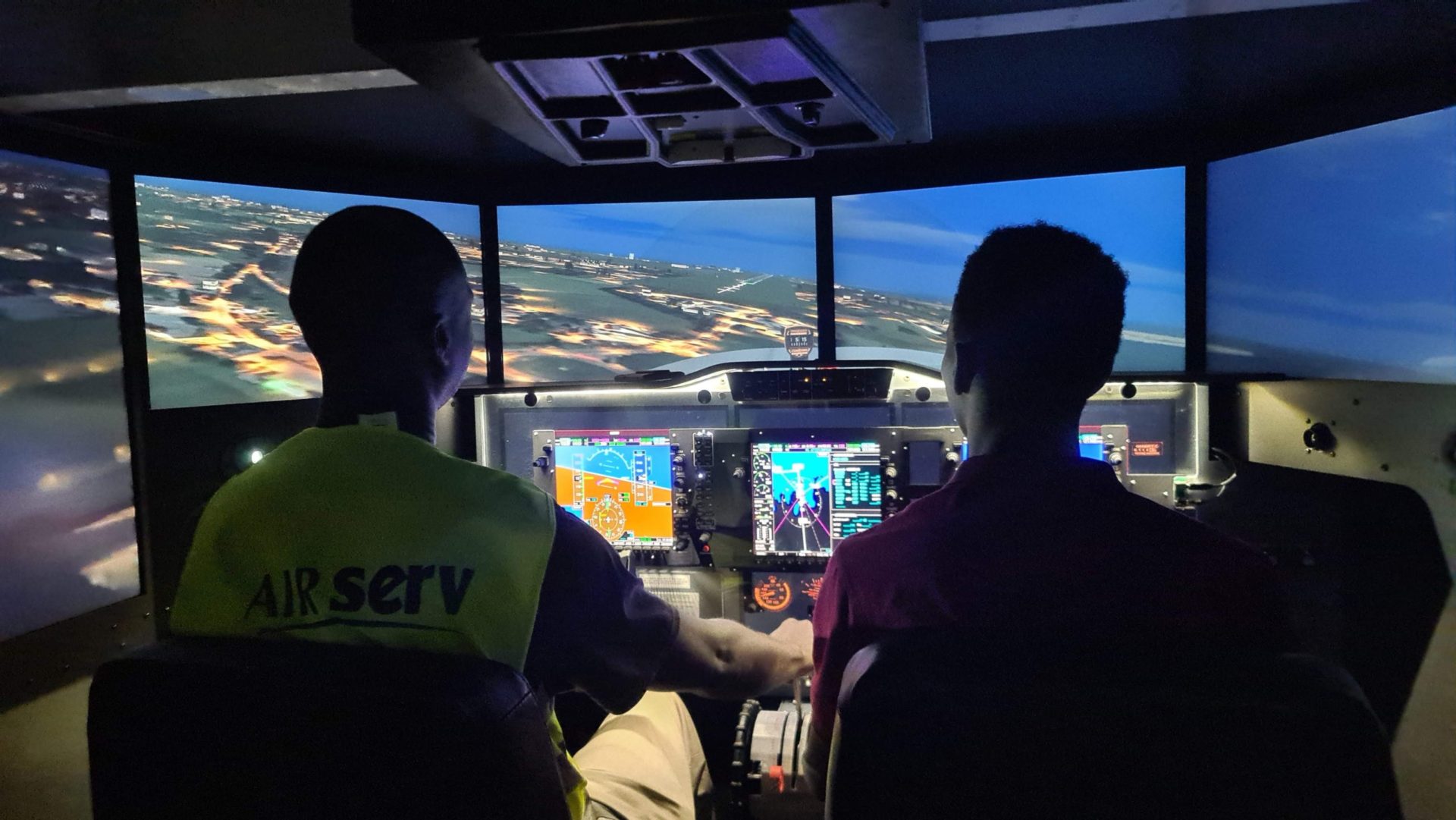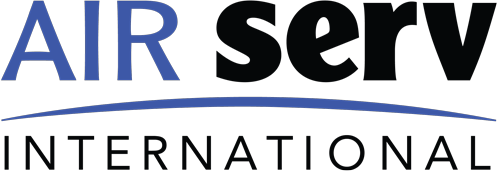
09 Aug Entebbe, Uganda – Flight Simulator Unveiled
Air Serv, a leading provider of humanitarian logistical support and aviation services in Africa, has revealed the newest addition to its groundbreaking training program for pilots and engineers. The Redbird CRV-S flight simulator was unveiled at Air Serv’s offices in Entebbe, Uganda, where the organization has established a supplemental training facility. The event generated much excitement, with attendance by senior representatives from Uganda Airlines, the Uganda Professional Pilots Association, Uganda Air Force, and local flight schools. Mr. Fred Bamwesigye, Director General of the Uganda Civil Aviation Authority, hailed Air Serv on the acquisition of the simulator, calling it “state of the art” and “the first of its kind in Uganda”. “This is a big milestone for the aviation industry in Uganda,” said Mr. Bamwesigye. “It will increase the country’s technical skills, which are badly lagging due to a set of technical people who are aging, with [fewer new] ones qualifying due to high cost of training.”
About Air Serv
Founded in 1984 as a US-based nonprofit, Air Serv was developed for the purpose of providing air transportation to humanitarian agencies operating in hard to reach areas. In 1997, a permanent operations base was established at Entebbe Airport, strategically positioned to support Air Serv’s extensive programs in Africa as well as the expansion of services offered, including aircraft maintenance, freight forwarding, hangar and ramp facilities, and consulting. The organization has ultimately become a recognized and well-respected leader in aviation throughout the region, and has developed a reputation for adhering to the highest of standards in performance, safety, and personnel.
In addition to the services it provides, Air Serv’s comprehensive and specialized expertise has led to a broader mission of supporting and contributing to the continent’s blossoming aviation industry. Considered by the International Air Transport Association to be one of the fastest growing aviation regions within the next twenty years, Africa is projected to have an annual industry expansion rate of five percent. But with this advancement comes accompanying challenges and obstacles, especially as industry growth outpaces labor capacity. Limited training facilities, high tuition costs, and longterm impacts of the COVID-19 pandemic are resulting in smaller candidate pools of qualified pilots and engineers, particularly in countries such as Uganda where a quickly growing aviation sector is creating an equally demanding need for trained professionals. Uniquely positioned to address this need, Air Serv stepped forward.
While it has long provided informal internship opportunities to local students and internal training to staff, the organization recognized an expanding need for formalized, hands-on training to meet engineer and pilot licensing requirements. Funded by a generous grant from the Hilton Foundation, Air Serv has developed a structured training program which combines classroom training, virtual education through its own online portal, and on-the-job experience. The program, supporting regional flight schools through the provision of supplemental education and experiential learning, also aims to generate interest in aeronautics, provide more opportunities for female students, and contribute to the region’s workforce. “We at Air Serv are utilizing our facilities as a tool to further stimulate the growth of critically needed aviation personnel, now and for the future,” says Johnson Mugulusi, Air Serv’s Managing Director in Uganda.
Program Participants
With the inaugural class currently in session, future participants will be selected from a growing list of applicants, based on criteria outlined by the company. Selected students will be provided transportation and meals in addition to their education and training. For engineering candidates, the hands-on portion of program will include working in Air Serv’s on-site maintenance facilities. Experiential training for pilots, who are required to obtain a minimum number of flight hours to achieve an aircraft-specific type rating, had previously been more restricted due to the cost and limited availability of aircraft. The addition of the flight simulator however, will be a game changer for the region’s pilots who need to build required time. In addition to its own training program, Air Serv intends to offer simulator access to local flight schools, private pilots, and fellow air service providers on an hourly rental basis.
Air Serv’s Cessna Caravan flight simulator is the first in the country to be made publicly available to student and civilian pilots. Working directly with the Uganda Civil Aviation Authority and the International Civil Aviation Organization to ensure utmost compliance, hours obtained through the simulator will count towards a Caravan type rating. The introduction of such a resource will create a safe, economical, and accessible opportunity for pilots who may have never been able to complete their training otherwise. “With the generous support of the Hilton Foundation and the assistance of our industry partners, we are thrilled to be making an impactful contribution to the development of the next generation of aviators,” said Mr. Mugulusi.
To learn more about Air Serv, please visit www.airserv.org and www.airserv.co.ug.

